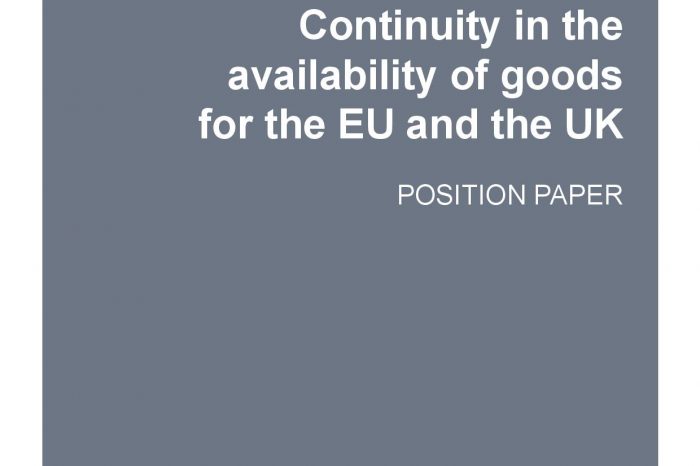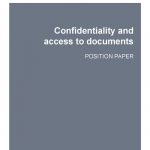Government position paper – Confidentiality and access to document
The second of two position papers to appear on Monday 21st August covers confidentiality and access to documents upon Brexit.
Compared with trade and the Irish border, this may appear a somewhat esoteric issue. The DExEU website explains that this paper has been produced as a response to the EU’s paper on “Issues relating to the Functioning of the Union Institutions, Agencies and Bodies.” This paper, which can be downloaded here, was produced in July by the EU’s Brexit task force.
Essentially, the two papers seek to ensure that Brexit does not result in confidential information such as sensitive economic data being leaked and also, that UK representatives who worked for the EU and signed confidentiality agreements will still be subject to these agreements on Brexit if they return to the UK. Furthermore, the EU does not expect all of its activities in the UK to be wound up immediately upon Independence Day and wishes to ensure that the UK will continue to guarantee the same level of protection as before. The European Investment Bank is mentioned by name as one institution likely to have a continued presence in the UK at least for a while after March 2019.
The UK Government’s response “recognises the importance of continuing to respect obligations of confidentiality and to protect information exchanged while it was a Member State.” It also acknowledges that UK citizens who worked for the European Institutions remain bound to their confidentiality agreements. It also points out, however, that this desire to maintain confidentiality cuts both ways and calls on the EU to ensure that any confidential documents which originated in the UK will continue to enjoy an equivalent level of protection.
It recognises that an agreement between the two sides will be necessary and the relatively concise nature of both the EU paper and the UK government’s response suggests that coming to an agreement here should be much less fraught and complex than it will regarding other issues, especially those relating to trade.
According to the Guardian, this desire for a reciprocal deal has attracted criticism from transparency campaigners in the UK, who say it may give the government more excuses to hide embarrassing information from the public. This is a fair comment. It would be an opportunity lost if decoupling from the EU was not accompanied by a move to a more open approach to government in the UK. The piece also points out that this position paper also seeks to provide reassurance for UK staff working at the European Commission, who have been excluded from involvement in some aspects of their work because of concerns that Brexit may compromise their loyalties.
In summary, this paper shows on the one hand that an agreement between the UK and the EU over some subjects should thankfully not be too difficult but at the same time, the relative obscurity of the subject illustrates just how many topics Messrs Davis and Barnier will need to be considering in these talks, if we are to achieve anything like a smooth Brexit.






